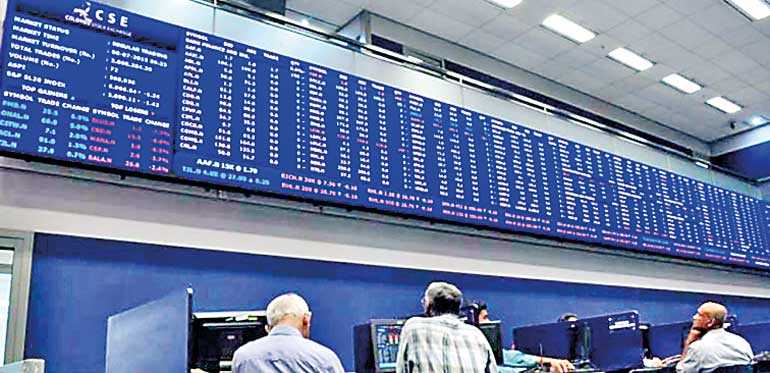Wednesday Mar 04, 2026
Wednesday Mar 04, 2026
Saturday, 11 May 2019 00:10 - - {{hitsCtrl.values.hits}}

Reuters: Sri Lankan shares fell yesterday for a seventh straight day, closing at their lowest in six-and-a-half years, and the rupee slipped for a second day, as the Easter bombings drove off investors.
Sri Lanka’s economic growth is expected to slump to its lowest in nearly two decades this year, a Reuters poll showed. Tourism, foreign investment and overall business activity have all dropped after the bombings.
Investigators have dismantled a major part of the network linked to the bombings, Prime Minister Ranil Wickremesinghe said on Tuesday. But he warned further attacks could not be ruled out. The benchmark stock index ended 0.46% weaker yesterday at 5,327.68, its lowest close since 5 December 2012.
Turnover was Rs. 152.8 million ($ 867,689), lower than this year’s daily average of around Rs. 565 million. Last year’s daily average was Rs. 834 million.
Foreign investors bought a net Rs. 20 million worth of shares yesterday, but they have been net sellers of Rs. 4.4 billion worth of equities so far this year.
The rupee closed weaker for a second session yesterday on dollar demand from banks. The rupee dropped 0.3% to close at 176.10/60 per dollar, compared with Thursday’s close of 175.60/90, Refinitiv data showed.
Analysts expect the currency to weaken further as money flows out of stocks and government securities.
The rupiah gained 0.6% this week and was up 4.5% for the year. Exporters had converted dollars as investor confidence stabilised after a $ 1 billion sovereign bond was repaid in mid-January.
The rupee dropped 16% in 2018 and was one of the worst-performing currencies in Asia. Foreign investors sold a net Rs. 10.8 billion worth of government securities in the week ended 8 May, extending net foreign outflow to Rs. 20.8 billion so far this year, Central Bank data showed.
Investor sentiment was damaged at the end of last year, when President Maithripala Sirisena abruptly removed Prime Minister Wickremesinghe and then dissolved Parliament. A court later ruled the move unconstitutional, but the political turmoil led to credit rating downgrades and an outflow of foreign funds.